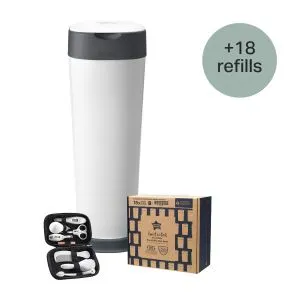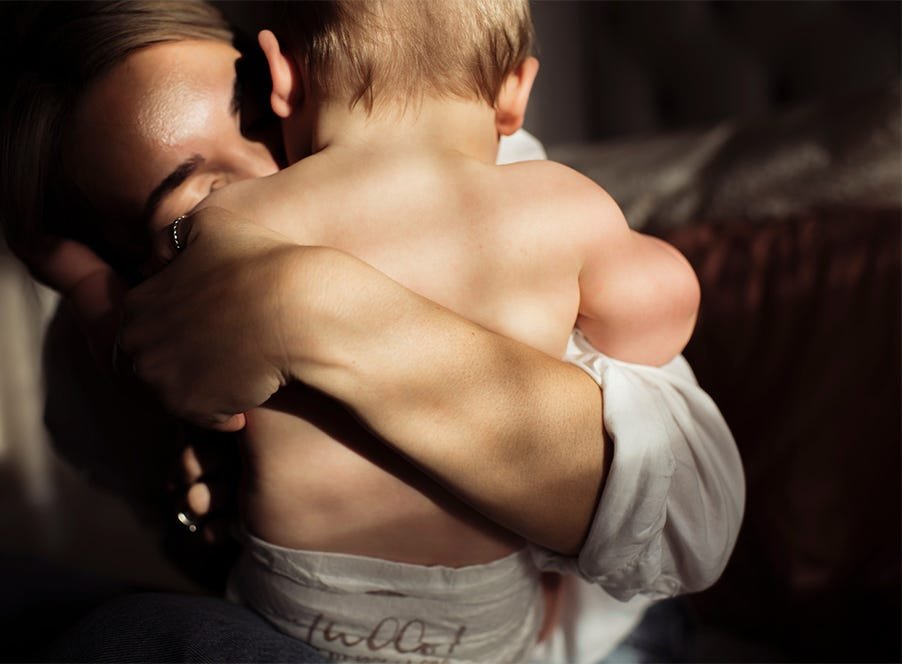
Ultimate XL Nappy Disposal Bundle with 18 Refills
Bundle & Save 40%
Subscription orders can be cancelled at anytime. Free delivery on all subsequent subscription orders. Find out more about subscriptions.
They’re easy and fuss free
Your products are automatically sent to you
You save up to 10% when you sign up for a subscription
You can cancel at any time

A baby's immune system isn't as strong as that of a toddler or young child, and it's very common for babies to get coughs and colds. Most little ones will catch eight or more colds a year because they haven't yet built up immunity to cold viruses.
There are two different types of baby cough, productive and unproductive...
This article is here to help you learn more about baby coughs, to advise you on how to care for your little one when they have a cough, and to let you know when to seek advice from a doctor.
There are lots of cold viruses out there. Babies and young children will be especially susceptible to catching these, as they've never been exposed to them before and have yet to build immunity. These are also more common during the autumn and winter months.
There are many ways that you can help soothe your baby and keep them comfortable when they've got a cough.
It's important that your baby continues to drink lots of fluids when suffering from a cough.
If the air in your home is very dry, using a cool mist humidifier can help to ease your baby's cough. If you don't have a humidifier, you can sit with your baby in the bathroom and run a warm shower to let them breathe in the warm steam. But never leave your baby unattended in the bathroom.
You can ask a pharmacist for some saline nose drops for your baby. These can help to loosen up and relieve dried snot from your baby's nose if it's a little stuffed up. It's worth noting that you shouldn't give over-the-counter medication to little ones under six months old, unless a advises you otherwise.
We've clarified that coughs are common and that all babies will feel under the weather from time to time, especially if they're attending baby groups or nursery. But there are things you can do to lower the risk of your little one getting poorly. These include...
Explore the Range
Although no one like to see their baby feeling unwell, a cough isn't necessarily something to worry about. If they're breathing normally with no wheezing, and are drinking and feeding as usual, a cough alone isn't usually cause for concern.
Remember that coughs are common, but you should seek medical advice right away if your baby...
Whooping cough is an illness that most commonly affects babies under six months old and is very contagious. The early symptoms are sometimes confused with those of a cold, so parents need to be aware of it.
Whooping cough symptoms include...
Thankfully, whooping cough in babies can be prevented by vaccination but if you think your baby has whooping cough, you should seek medical attention right away.